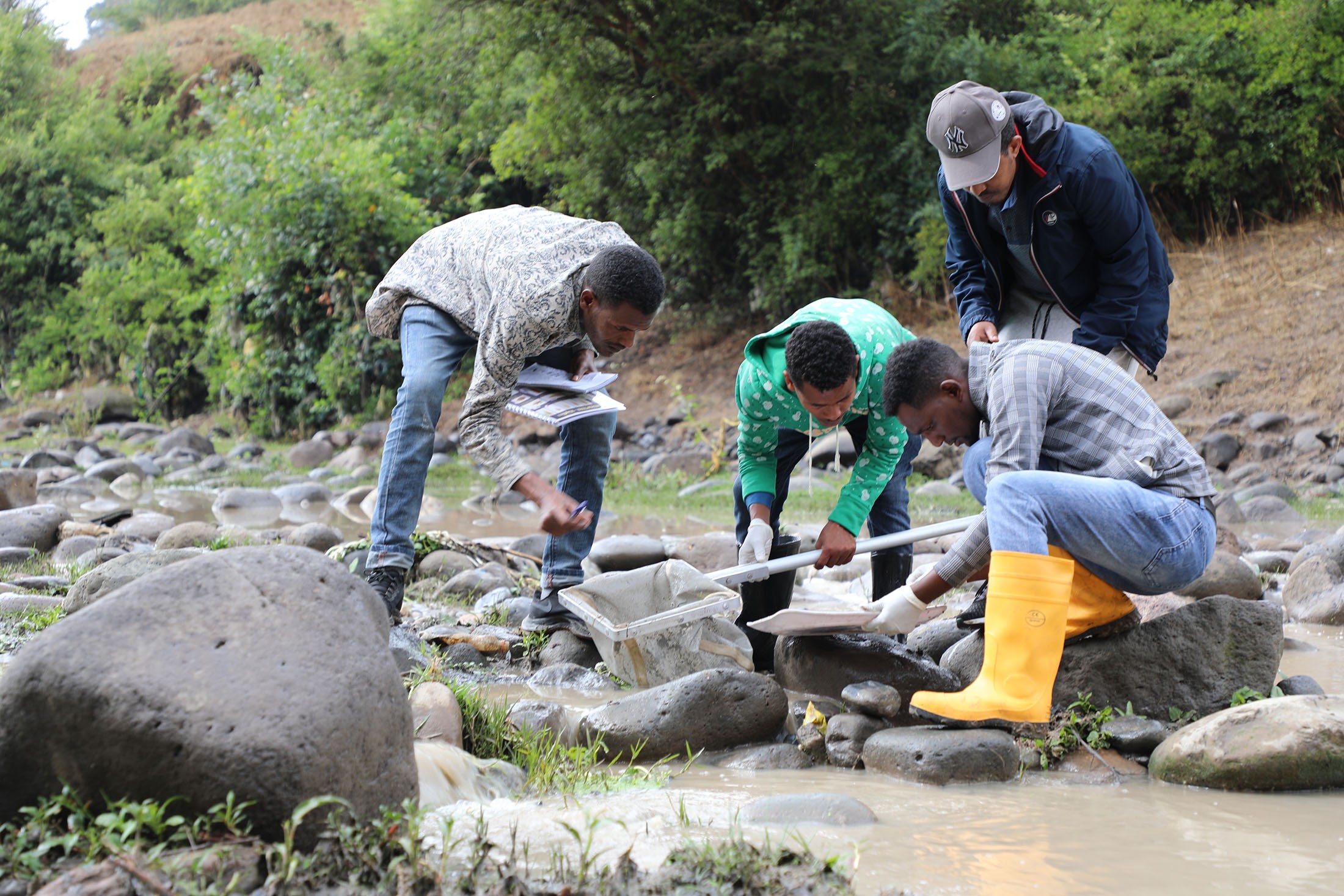
Impact Summary
The Ethiopia Collaboratory has made significant strides in strengthening water security in Central Ethiopia by taking a systems approach that enabled a multi-faceted and comprehensive understanding of water security that spanned multiple river basins and included Addis Ababa.
By developing open-access, multi-source data on land, water, and climate, the Ethiopia Collaboratory has enhanced planning and decision-making capabilities. This included identifying water risks and promoting sustainable practices such as the embedding water sensitivity into urban planning, advancing equity in water governance. These were underpinned by quality-controlled databases, multi-stakeholder decision-support platforms, and analysis of hydrological processes and testing of water security solutions.
Enabled by the Hub’s Collaboratory approach, the Water and Land Resource Centres (WLRC) and International Water Management Institute (IWMI) and other Hub members were able to strengthen partnerships for knowledge sharing, capacity building, technology transfer, and enhancing capabilities of water managers and planners in various organisations. Through rigorous processes of participatory research over the project period, partnerships were established and strengthened from local communities to high level decision-makers. Moreover, discernible trust has been built, as witnessed by subsequently collaborations for further action to meet local needs and priorities.
Our Approach/Framing
The Ethiopia Collaboratory employs an integrated and multidisciplinary approach to address water security challenges. Drawing on expertise from fields including hydrology, climatology, agriculture, environmental science and geography, we work within and across other Collaboratories in the Hub to develop comprehensive solutions for water-related issues. We also collaborate with stakeholders across scales, enabling us to continuously refine our research focus and approach to contribute practically to water resource management, while acknowledging the diverse values associated with water.
Our methodology is grounded in systems thinking and utilizes advanced technical tools such as model-driven system analysis to understand the complex relationships between climate change, water resources, and agriculture. We emphasise primary data collection and analysis, creating an integrated knowledge base, which has strengthened technical and stakeholder capacity. This enabled us to promote basin sustainability and develop scalable solutions applicable to other basins, ultimately contributing to improved water security in the region and beyond.
Outcomes and Emerging Impacts
Early successes and emerging impacts of the Ethiopia Collaboratory include:
- Knowledge co-generation and multi-stakeholder engagement to develop basin management systems, decision-support systems, and conduct water systems analysis.
- Capacity development of stakeholders and researchers through technical workshops, citizen science, water values discussions, and evidence consultations.
- Development and integration of multiple water-related data sources to fill data voids and provide data-based evidence for decision-making and targeted solutions.
- Implementation and upscaling of innovative tools and approaches via global collaboration.
Download the full Ethiopia Impact Narrative
Ethiopia Impact Narrative



